Higehiro: After Being Rejected, I Shaved and Took in a High School Runaway, or just Higehiro is a great anime airing this season. It is really, really good. It sounds weird and like it would be awful, but it is incredibly wholesome and a contender for my favorite show of the season.
This isn’t because I think the anime is perfect, I just think the premise is wonderful, and Project No.9 handled it very well. As you can tell from the title, the story could have gone down a bad road very easily.
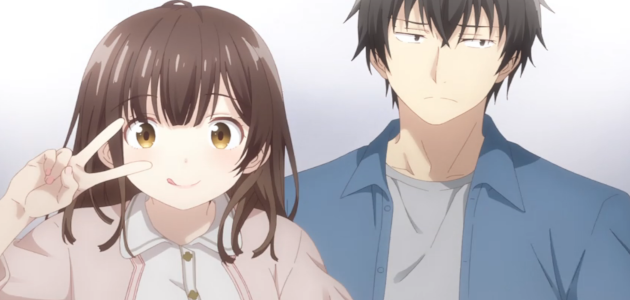
The premise is fairly simple. A 17-year-old high school girl, Sayu, runs far away from her home for reasons you’ll find out as you watch the show. In order to survive, she had to sell her body to men so she wouldn’t have to sleep on the streets, forgetting about her self-worth along the way.
Eventually, she ends up at Yoshida’s house, a 26-year-old who just got rejected by the girl he likes at work. He allows Sayu to sleep at his place, rejects all her advances, and lets her stay with him as long as she takes care of the house. She agrees, and the two start their lives together. All the while, Yoshida teaches her the importance of her body and how to value her own self-worth. And he shaves.
Originally I was worried that this series was going to be a little uncomfortable, but it handles everything about the premise maturely and is just a treat to watch. It really heals your soul and restores your faith in humanity, the same way Yoshida does for Sayu.
And that’s what got me thinking… is what Yoshida is doing actually right? That’s a question that is posed multiple times throughout the series. It’s the main conflict in the story, really, besides what trauma Sayu has experienced. If anyone finds out what Yoshida is doing, he’s getting in trouble. He’s harboring a runaway. Without alerting the proper officials or relatives, what he’s doing is illegal.
While Sayu is almost 18, as far as Japanese law is concerned, until she’s at least 20, Yoshida can get charged with kidnapping a minor, regardless of the circumstances, even if Sayu is staying there of her own free will. Kidnapping a minor is not a charge you want, as you can probably imagine. It’s also not going to look great for him, considering Sayu hasn’t been home in months.
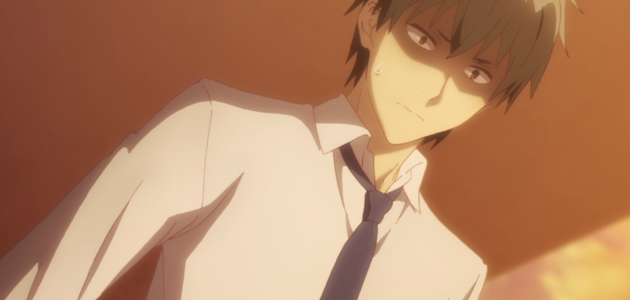
So from a legal standpoint, what Yoshida is doing is very, very bad. The law is not on his side in the slightest, and it doesn’t care about why he’s doing it either. But that doesn’t mean he’s in the wrong. The law is there to give society order and to protect us, but it isn’t necessarily the perfect image of what justice is. While there’s some give, the law is often black and white. What is right and wrong isn’t.
But the concept of right and wrong doesn’t really exist. What is right for one person is wrong for another. It’s why no one decision will ever make everyone happy. There will always be at least one person who suffers. It’s sad, but it’s true.
That’s why this post is my opinion of Yoshida based on my own perception of what’s right and wrong. And, I think, the much more interesting question is if what Yoshida’s doing is morally right? Legally right? No, the guy’s going to prison. But a more psychological look is definitely something I can do, as someone who is in no way qualified with zero years of experience in the field. But I still like thinking about it.
So, what are the facts? Sayu, a 17-year-old impressionable high school girl ran away from home for (pretty serious) reasons I won’t disclose for the sake of spoilers. To survive, she jumps around from man to man who all use her for their own selfish desires until throwing her away like trash. This continues until she finally meets Yoshida, a guy who seems to have no sexual interest in her but still accepts her into his home.
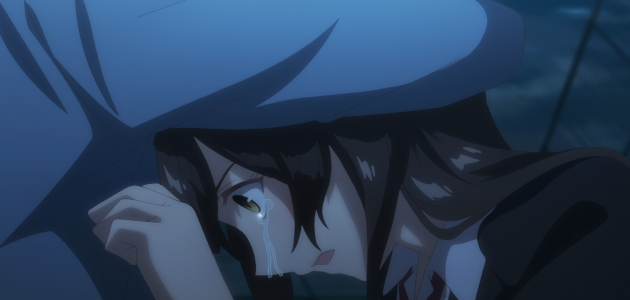
While this makes him seem just, there are quite a few problems. Firstly, when Sayu gets to Yoshida’s home, she does nothing but throws herself at him constantly. Undressing, teasing, whatever you could imagine to get to him. It seems like it’s because that’s just her personality but you find out very quickly that her reasoning is a lot deeper and more damaged than that.
By Yoshida taking her in, a girl with a face somewhere in between “cute and beautiful,” as he says, there’s no way of knowing if he will eventually fall for her and stop rejecting her advances. If he does, he wouldn’t be much different from those who used her before and make him very hypocritical. It would also reinforce her twisted perception of kindness she got from other men and continue her down a very poor path in her adulthood.
Whether that happens or not is up to Yoshida’s willpower. Again, he does find her attractive. Even when he falls into his more fatherly/big brother role, later on, there are several points he gets flustered by her, showing that his feelings may run a little deeper than he lets on.
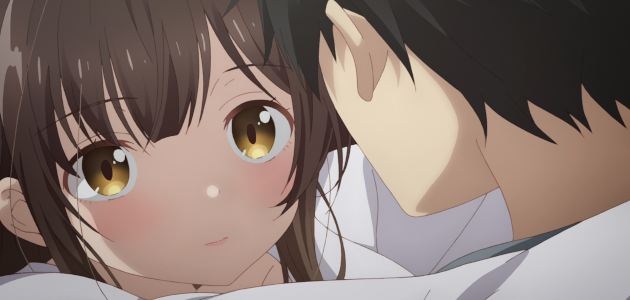
Sayu’s view is much more obvious. She, without a doubt, loves him. It would be hard for her not to. He took her in when she had nothing, gave her everything, and taught her what’s important in life. Her feelings are clear.
You can say Yoshida’s dense, but he’s not that stupid. He has to know, and he’s reminded countless times by his coworkers who know of Sayu that he may fall in love with her himself. He knows if that happens, that’s all there is to it. Sayu wouldn’t object. She wants that, even.
So that creates this fascinating situation where you have to question whether the two of them being together is right. I really don’t think so. From day one, the point of the series was to teach Sayu that her body is important and that people can be kind without some reward for themselves. That someone, Yoshida in this case, can be kind just because it’s the right thing to do.
For him to fall in love after all that, and the dozens of times he’s said he has no feelings for her, well, he’s a bit of a hypocrite, isn’t he? While I think Sayu is mentally repaired enough for it not to damage her in the long run, for the one who taught her what kindness meant to fall in love with her could reinforce her twisted thoughts, or worse, cause them to resurface if they would ever break up.
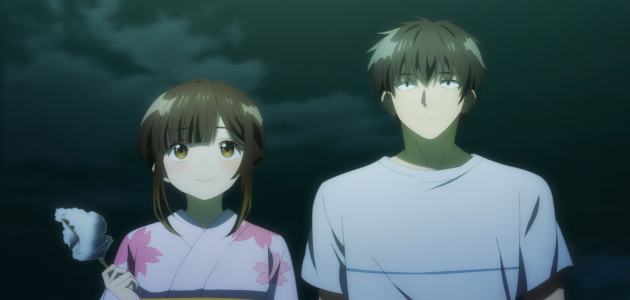
Whether Yoshida likes it or not, he means a lot to her, way more than he can likely understand. He goes beyond being a man to her. He’s some symbol of what it means to be kind. In that way, I think falling in love with her is very dangerous. He’s her guiding light in a lot of ways. While I don’t think he would, it would be very easy for him to take advantage of her. He can’t do much wrong in her eyes. They aren’t on the same level. They aren’t equals. As the adult, but more importantly, the more put-together human being, he needs to understand that.
There’s also the age gap problem, but that’s a different discussion entirely. My viewpoint, it’s not that big of a deal. Here’s a great post you can check out that talks about that by a blogger friend of mine.
The concept of Yoshida’s kindness is a much more detrimental problem. Kindness, in general, is always an interesting topic for discussion. It’s something I think about way too much. Yoshida seems to have unconditional kindness. Something I don’t think really exists.
While you can be kind to someone, there will always be something you’ll get out of it, even if it’s something as innocent as feeling good about yourself or just wanting to help that person. There’s usually a somewhat selfish reason, even if it isn’t harmful to anyone involved. So unconditional kindness is a nonexistent, or at least, incredibly rare thing.
And many of the characters understand that fact. It takes Sayu quite a while before she fully believes that Yoshida doesn’t want anything from her. She’s seen how men are and can’t fathom that he would just help her without something in return until after she’s stayed with him for a while.
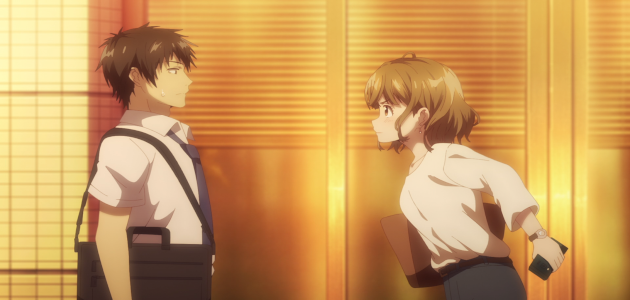
Mishima, Yoshida’s coworker and another girl who has feelings for him, calls him out pretty ruthlessly in episode 7. When he says that there’s no real point in giving her his contact info, she flips and says that Yoshida only pretends to care about others but really just does whatever he wants without any regard for the opinions of others. Basically, he’s self-righteous as hell. He also gets called out for only taking care of Sayu because he feels good about it. So he’s self-righteous and toots his own horn.
The story begins to get a lot more interesting when you think about it that way. Without a doubt, Yoshida has helped Sayu. He took a broken girl into his home, was nothing but nice to her, taught her to care about herself, and healed a lot of trauma without ever asking for anything in return.
In that way, Yoshida was definitely a good person. Better than good, really. Yoshida may think that he’s not good and every other man that Sayu met just sucked, as he tells her, but we all know that his actions were above and beyond what is just considered “kind.”
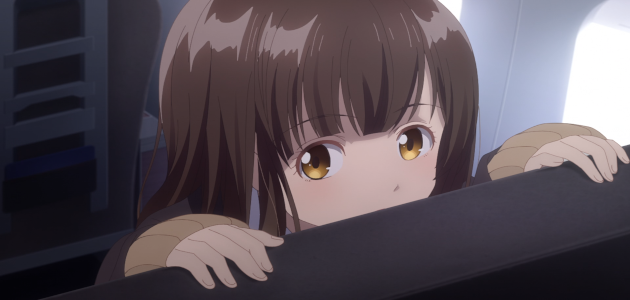
But it raises the question of whether he helped Sayu out of the goodness of his heart or just because he thought it was the “right” thing to do. While helping this runaway seems morally just, there was a lot of harm it could have did, besides what I mentioned before.
Yoshida knew nothing of her circumstances. Not where she came from, who her parents were, whether they were worried about her. He knew nothing. He just took in this high school girl with an unknown past, purely because he thought she was cute, as he mentioned later, and because he wanted to do it.
Sayu could have been a bank robber or a serial killer for all he knew. Yoshida could have been harboring a fugitive, not just a runaway. She could have parents frantically searching for their daughter, wondering every night if she was still alive. Sayu could have just been lying to him about everything. He didn’t care about any of that.
Yoshida took everything she said at face value because he thought she was a good girl and decided on his own that it was ok for Sayu to stay there with him for a while, regardless of everyone he knows and the law, telling him that it was a bad idea. If that isn’t self-righteousness, I don’t know what it.
The answer to whether or not Yoshida is a good person isn’t so easy to answer. It’s because, as I said at the start, it is a very subjective question. It depends on you and your views. What you consider kindness to be and what makes a good person. It’s probably why me, being a fairly cynical person at times, is the one talking about it.
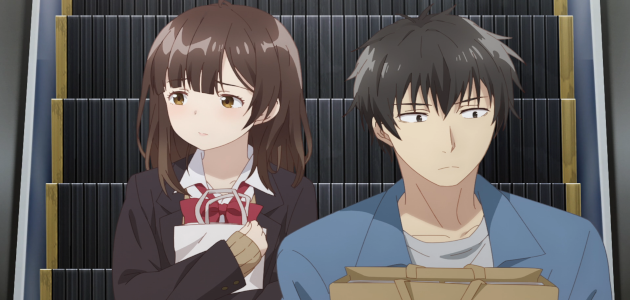
I would say that yes, Yoshida is a good person, but that is again, by what I consider the words to mean. With that said, I don’t think he has unconditional kindness either. I think he’s very selfish and is helping Sayu mostly, if not entirely, because of his own reasons. But I don’t think that makes him bad.
I consider myself to be at least somewhat kind. I falter a lot, and I know I could do a lot better, but I try my best to treat people the way I would want to be treated myself, with respect. But I have selfish reasons for doing that. It’s partly because I want to be nice, it’s partly because I feel good about myself when I am, and it’s partly because there’s a lot of bad people in the world, and I never want to be a part of that. I don’t want to complain about crappy people and then be crappy myself. I’d be a hypocrite.
Even if my reasons are very selfish, I don’t think that makes me a bad person, nor do Yoshida’s reasons. Being selfish is not a bad thing. It’s very important. It’s something that everyone needs. We can’t survive without it.
If we weren’t selfish, we would never value ourselves. We would never want better for ourselves. We just wouldn’t care about our own well beings at all. We want to live, and we want to make lives we can be proud of for ourselves. That all stems from selfishness.
The act of being selfish is not inherently bad. It’s what gives us the ability to care about ourselves. So while Yoshida’s actions were selfish, dangerous, and had the potential for very negative repercussions, he is not a bad person.
Maybe he felt it was the right thing to do. Maybe he felt good about himself for being a hero. Or maybe he just didn’t want the guilt of turning away someone who needed help. Regardless of his reasons, he managed to help a young girl when she needed it most, when nobody else would. He may be selfish, he may be naive, and he self-righteous as all hell, bad I just can’t call him bad.
Thank you very much for reading
What do you think it means to be kind? It means a lot of different things to many different people, that I know.
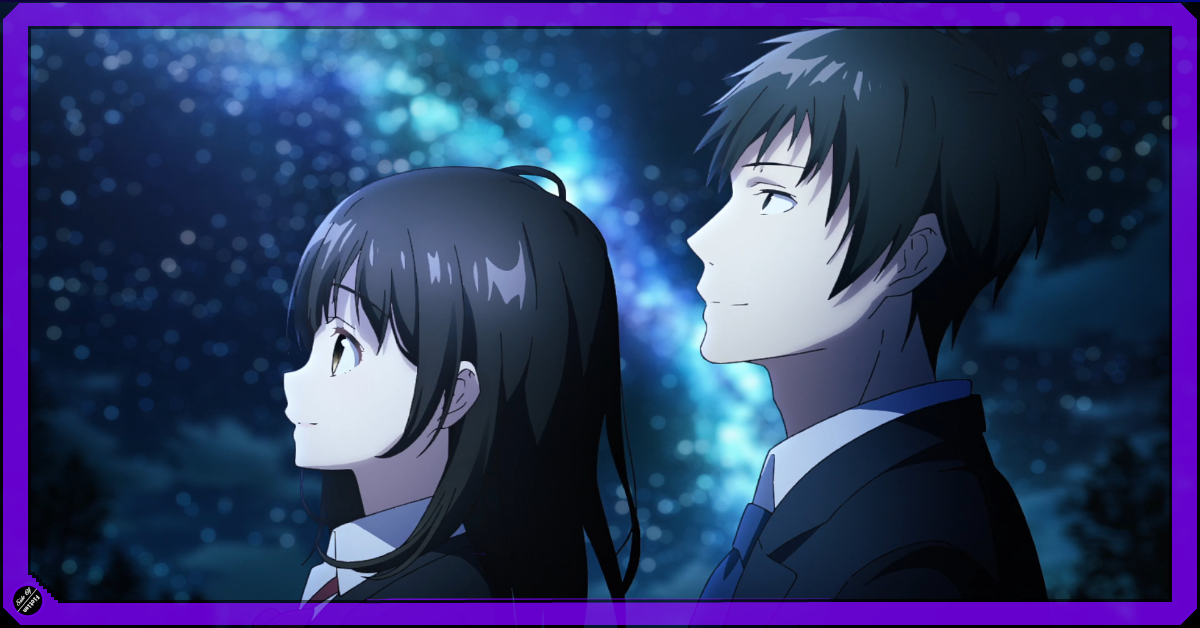
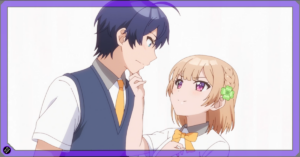
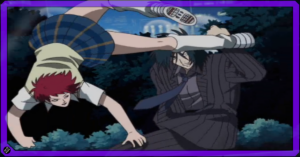

This is easily the best analysis of Higehiro I’ve seen. In a lot of discourse, especially surrounding the ethics of a character, a lot of nuance gets thrown out of the window. Either a show is “enforcing problematic ideas” by depicting them in any light or “people are being too sensitive” for looking more (some would say too) closely at fiction. Like you, I think the most useful approach is somewhere in the middle: viewing characters in terms of what they represent in a thought experiment. Like you said, Yoshida is self-righteousness personified, but by sticking to that code and walking his own line, he’s going to tread on a few toes. Would it be better to slightly betray one’s own morals in order to avoid imposing on someone else’s? The answer is entirely within the eye of the beholder, and would vary even more when talking about a character. Some people might say a stronger character is someone who doesn’t change their beliefs according to the circumstances, whereas others would say a character’s fluidity and adaptability makes them interesting. (For what it’s worth, I think aesthetic personas, characters like Monkey D Luffy or Emiya Shirou who serve as symbols for their ideals, work best when they’re unwavering. Characters that are meant to read more like actual people, like pre-Falcon of the Millennium Guts or pretty much anyone in Neon Genesis Evangelion, are most interesting when we get to get into how and why they react to changing circumstances.)
I really admire your ability to think deeply on even simple questions, as I’m a big believer that anything can be “that deep” if you can glean continuous meaning from it.
Thank you so much.
I think any character, regardless of what their personalities are like, can be well written. I don’t think a character has to feel “real” like you said. Different characters work for different stories, and I think every person will have a slightly different opinion on all of them. And I agree wholeheartedly with Shirou. There wouldn’t be certain amazing plot points in Fate (you know the character I’m talking about) if Shirou wasn’t unwavering. We also get to see how damaging that way of thinking can be in Fate, in two ways, really, with Shirou’s lack of care for himself and that certain other character. So while he seems like typical naivete, a lot of cool things stem from that.
What would Yoshida Reasons for taking care of her be that makes him selfish?
His Reasons seem to be just to help her get a normal life. Maybe helping him feel that he did the right thing, and not feeling lonely in his home anymore, which is revealed in episode 3 but I do not see any other reasons than this.
I think it depends mostly on how you think about it. As you said, Yoshida feeling good about himself was one. Your second point is the bigger one. Rather than take Sayu to the proper authorities when he finds out she’s a runaway, he decides that it’s best for her to stay with him, partly to help his loneliness but also because he decided it was the right thing to do. It didn’t matter if that was actually the best thing for her. For all he knew, she could have had parents worried to death about her. She could have been a problem child who ran away for no good reason. She could have just been throwing a fit. Sayu was a good person, and it just so happened that he could help heal her in a lot of ways, but he still made a conscious decision not to do what he should have and continue to hide her away despite any consequences that could have come from it. The selfishness stems from why he decided to take her in. And that relies on how cynical you are, pretty much. There are a few episodes where characters point to the fact that he’s not helping her out of kindness, but because he wants to be the hero, pretty much. He feels like he’s the only one who could help her, and that’s why he took her in. He’s not helping her because he’s kind. He’s helping her because he believes he should, and if that’s the case, does that still count as kindness at all? At what point does it stop being about helping her and more about filling his ego? Questions about what kindness even is are what it comes down to. Ultimately, I do think Yoshida has actions that could be seen as selfish, but it’s more that he’s incredibly self-righteous, and in order to not conflict with his beliefs he commits acts that are selfish.